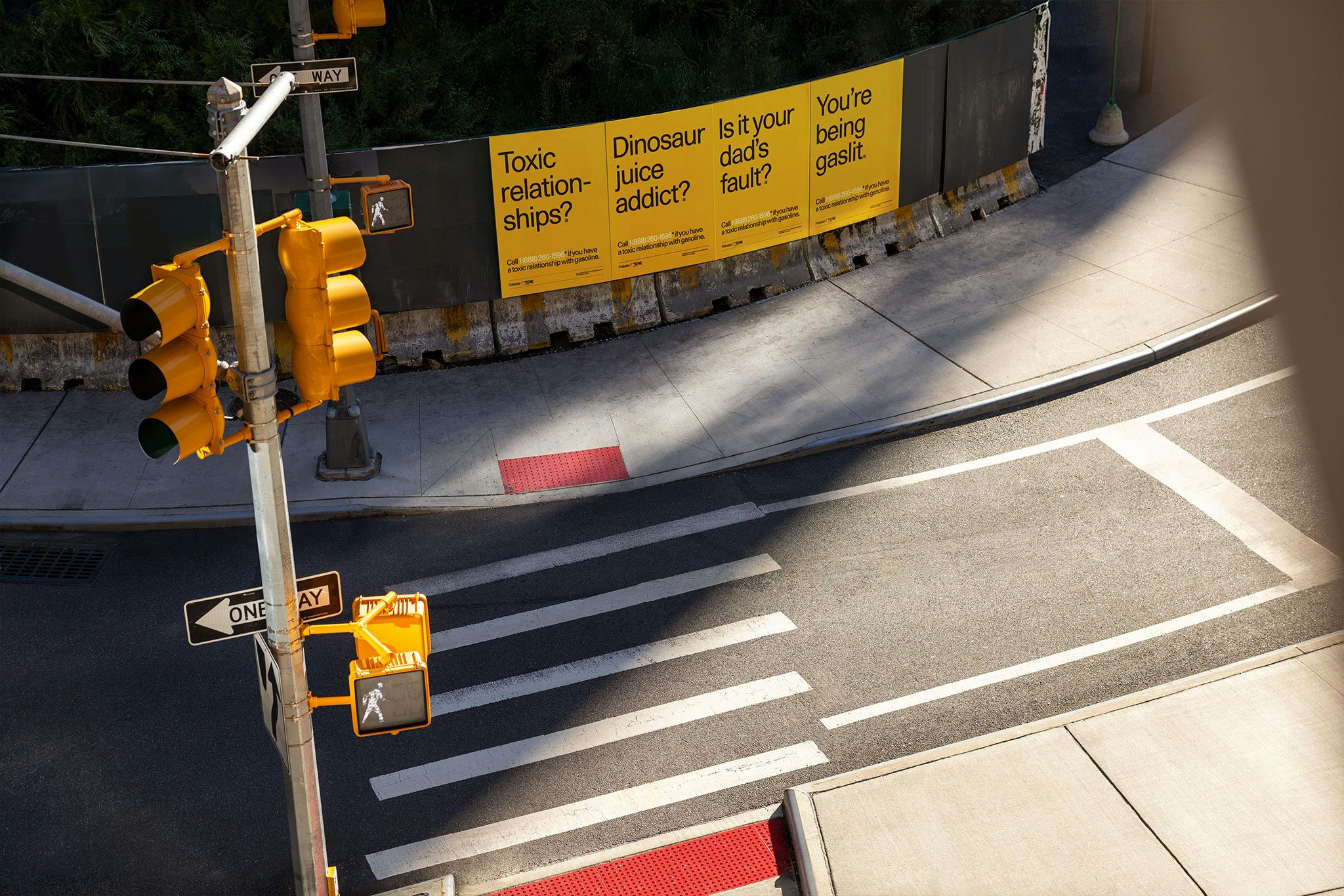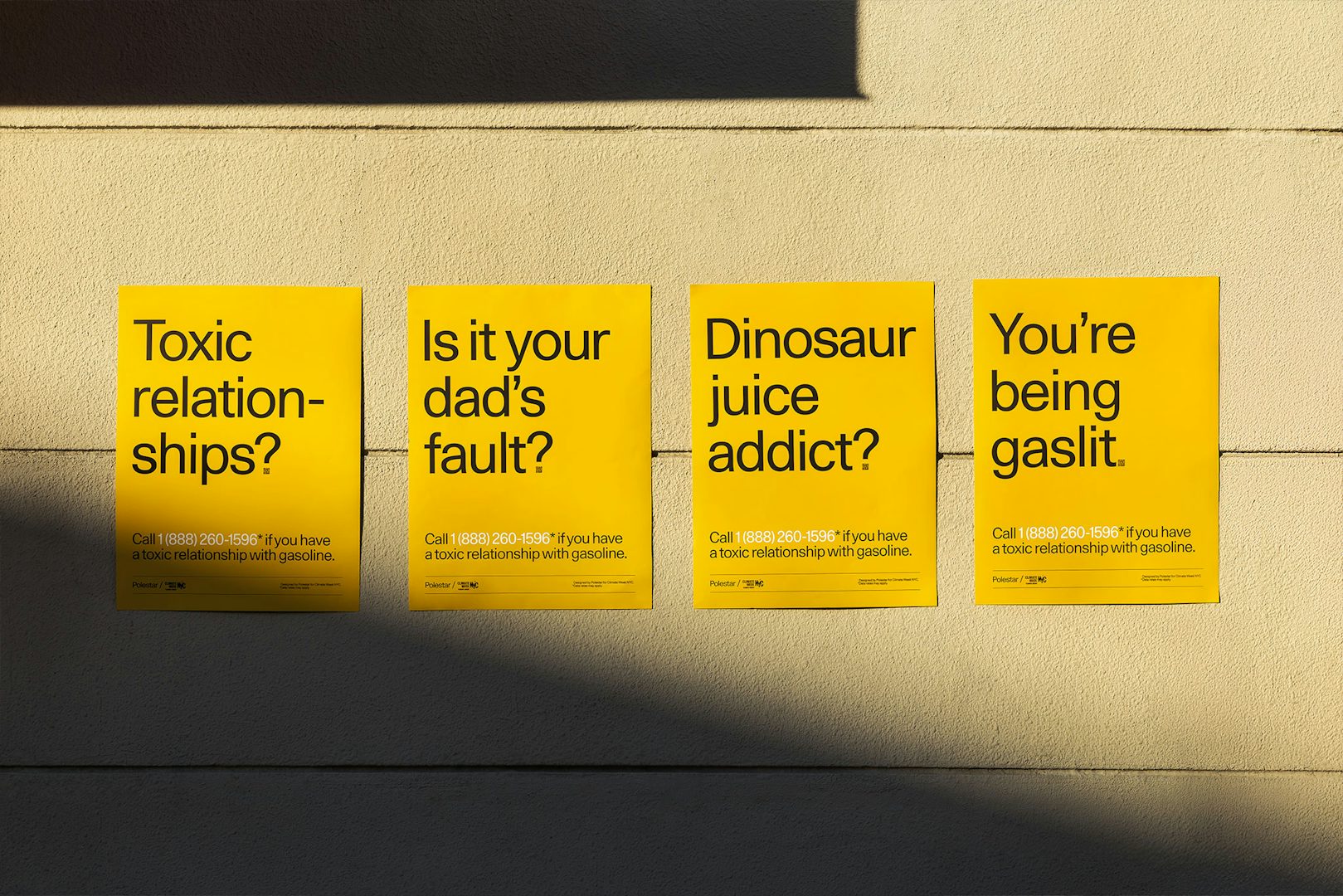Polestar calls out ‘dinosaur juice addicts’ in guerrilla campaign
The Swedish EV maker’s provocative OOH push, supported by Climate Week NYC, targets car manufacturers still reliant on fossil fuels
Polestar isn’t mincing words with its new guerrilla marketing campaign. The Swedish EV manufacturer – which describes itself as an electric performance brand – has rolled out an eye-catching OOH activation that likens combustion engine dependency to a toxic relationship – one it says it’s time to walk away from.
Launched to coincide with Climate Week NYC, the campaign swaps out sleek product shots for therapy-inspired prompts. Posters plastered across Manhattan shout lines like ‘Dinosaur juice addict?’ and ‘It’s your dad’s fault?’, directing passers-by to a hotline. Callers are met with a blunt reality check: facts about the environmental and social costs of fossil fuels, and why drivers should finally break up with gasoline.
“It’s raw, disruptive and impossible to ignore,” says Fredrika Klarén, Polestar’s head of sustainability, who is also speaking at Climate Week’s flagship panel The Challenge, the Change and the Tech. “The industry keeps clinging to outdated tech. We wanted to do something that cuts through.”

Creative director Hunter Skipworth explains that the metaphor of fossil fuel reliance being like a toxic ex came from “half joking” about how everyone knows the damage they cause, yet the world still can’t move on. “Politicians and traditional car makers are clinging on to an old, toxic ex,” he says. “So we thought – let’s create a helpline.”
The hotline mechanic gives the campaign a pleasingly retro flavour, deliberately avoiding QR codes or other common digital tropes. “We like the analogue feel,” says PR lead Ellen Broomé. “Initially we had the idea of targeting other, traditional carmakers – these dinosaur juice addicts are clearly old-school, let’s give them an old-school hotline. But then it stuck.”
The typographic posters themselves lean on Polestar’s design language. A black-and-gold palette – referencing both Polestar’s ‘Swedish Gold’ and New York’s iconic taxis – amplifies the message while staying true to the city’s visual identity. However, the choice of location is as strategic as it is symbolic. Over half a million cars pour into Manhattan every day, making the hard-to-miss campaign particularly pointed.

By making such a bold statement, Polestar could be seen to be inviting backlash – the long-term environmental impact of EVs is still hotly contested in some quarters. But Polestar has made a habit of such messaging. From its No Compromises Super Bowl spot in 2023 to its transparent sustainability labelling for new models, the company has consistently framed itself as a challenger brand pushing a reluctant industry forward.
More pertinently, it has cut its relative emissions by 25% over the past four years, even as competitors and politicians have backpedalled on their climate commitments. “When the world zigs, we zag,” says Broomé, paraphrasing Sir John Hegarty. Polestar’s new campaign pushes the provocation further, albeit with tongue firmly in cheek. “We’re not blaming the driver,” Broomé adds. “But we do want drivers to look up, laugh and maybe think twice.”










